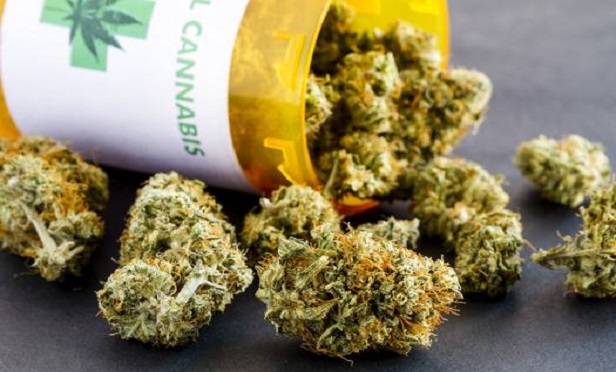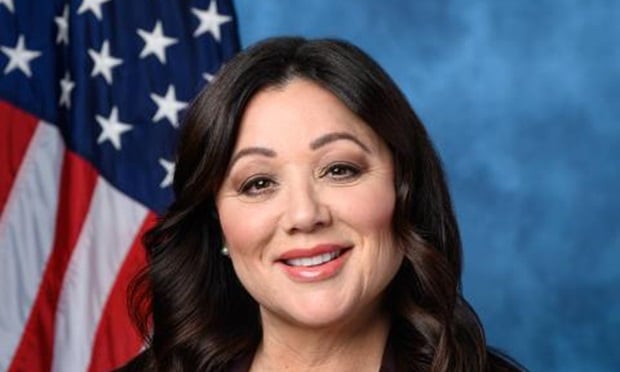 Though FDA made its position on CBD clearer at the end of 2019, technically all of FDA's enforcement actions so far have qualified as unofficial agency actions.
Though FDA made its position on CBD clearer at the end of 2019, technically all of FDA's enforcement actions so far have qualified as unofficial agency actions.
With a market estimated to grow more than 260% to a dizzying $1.25 billion over the next four years, it appears that the demand for cannabidiol, more commonly known as CBD, is expected to continue to grow. All of this growth is still expected despite the actions by the Food and Drug Administration (FDA).
In November 2019, FDA issued Warning Letters to more than a dozen companies saying they had violated the Federal Food, Drug, and Cosmetic Act for selling consumer products with CBD. FDA stated that these products could not be marketed because they made unlawful drug claims for their products and that the use of CBD in these products was inappropriate. FDA's currently stated policy is that CBD cannot be used as ingredients in food and dietary supplements without new FDA regulations allowing its use. Furthermore, FDA stated that it had safety concerns regarding the use of CBD due to potential side effects associated with the ingredient.
Related: Wading through the cannabis haze
The industry responded by saying they believe the use of CBD is safe and effective at appropriate levels and that FDA should enact regulations to allow for the safe use of CBD in consumer products.
Despite this dispute, it currently looks like the CBD market will continue to grow in 2020. While recent FDA actions have created a speedbump for industry, they haven't been enough to stop the CBD train. Without FDA regulations to clearly allow for the marketing of CBD consumer products and without consistent FDA enforcement of this issue, the industry continues to look like the Wild West, i.e., a place where there is a lot of risk but potential for growth.
2020 looks to be a pivotal year for CBD and related hemp markets, and anyone involved in the cannabis industry should be paying close attention to evolving actions. Here are four points to consider as the new decade begins.
1. Class action lawsuits against CBD companies could threaten the industry's growth.
While the November Warning Letters from FDA were a surprise, the more worrying risk may come from the recently filed class action lawsuits. Last year, a handful of CBD companies were hit with class action lawsuits alleging they misled consumers by marketing their products as dietary supplements. This lawsuits came shortly after FDA's Warning Letters and were based in part on FDA's reasoning that CBD products are excluded from the dietary supplement definition.
This distinction was made based on the fact that CBD was first investigated as a drug before being marketed as a supplement or food. Without final agency action from the FDA on the regulatory status of CBD, it's unclear whether the courts will want to resolve this issue or wait for further guidance from FDA. Nevertheless, the outcome of these suits will have wide-ranging impact on the industry moving forward.
2. Political support could have significant implications on the CBD and cannabis industry.
While November saw FDA take its most aggressive position against CBD in dietary supplements and foods, it remains to be seen whether CBD's political allies in Congress will be able to push back on FDA. Having already passed the 2018 Farm Bill the year before that helped spur on the enormous growth of CBD, the political power of those in favor of CBD should not be underestimated. Additionally, the outcomes of the upcoming presidential and congressional elections could impact both the status of CBD and cannabis industry at large. Those that want to influence the legal status of CBD and cannabis should be working to support the election of political representatives that will push their preferred outcome.
3. Without an official action on CBD by FDA, expect continued confusion on enforcement at the federal, state, and local levels.
Though FDA made its position on CBD clearer at the end of 2019, technically all of FDA's enforcement actions so far have qualified as unofficial agency actions that can't be reviewed by federal courts. As a result, there is some remaining confusion whether or not FDA's position on CBD will stand up to scrutiny. FDA may continue to regulate this area through unofficial means such as Warning Letters in 2020. If it does, then this will give some flexibility to those in industry that want to continue the risk of selling CBD products. However, if this issue is reviewed by the courts in 2020, we may get a final determination regarding the status of CBD in consumer products.
4. States and the USDA are expected to finalize rules and answer outstanding questions regarding hemp farming in 2020.
In October 2019, the United States Department of Agriculture (USDA) released the text of its interim final rule that specifies rules and regulations to produce hemp. Currently, a farmer must be licensed or authorized under a state or tribal hemp program or through the USDA hemp program to produce the crop. However, there are significant differences between states (and even within states and through Indian tribes) that can cause confusion for producers interested in hemp farming. Additionally, new license applications were only eligible for possible approval beginning after November 30.
With these rules still new to many, there are still uncertainties regarding how each state will respond and how the USDA will approach Tetrahydrocannabinol (THC) testing and more. The new year will hopefully provide more guidance on questions pertaining to all aspects of hemp production both federally and at the state level.
William A. Garvin is shareholder and co-chair of Buchanan Ingersoll & Rooney's Cannabis Group.
Read more:
Complete your profile to continue reading and get FREE access to BenefitsPRO, part of your ALM digital membership.
Your access to unlimited BenefitsPRO content isn’t changing.
Once you are an ALM digital member, you’ll receive:
- Breaking benefits news and analysis, on-site and via our newsletters and custom alerts
- Educational webcasts, white papers, and ebooks from industry thought leaders
- Critical converage of the property casualty insurance and financial advisory markets on our other ALM sites, PropertyCasualty360 and ThinkAdvisor
Already have an account? Sign In Now
© 2025 ALM Global, LLC, All Rights Reserved. Request academic re-use from www.copyright.com. All other uses, submit a request to [email protected]. For more information visit Asset & Logo Licensing.








